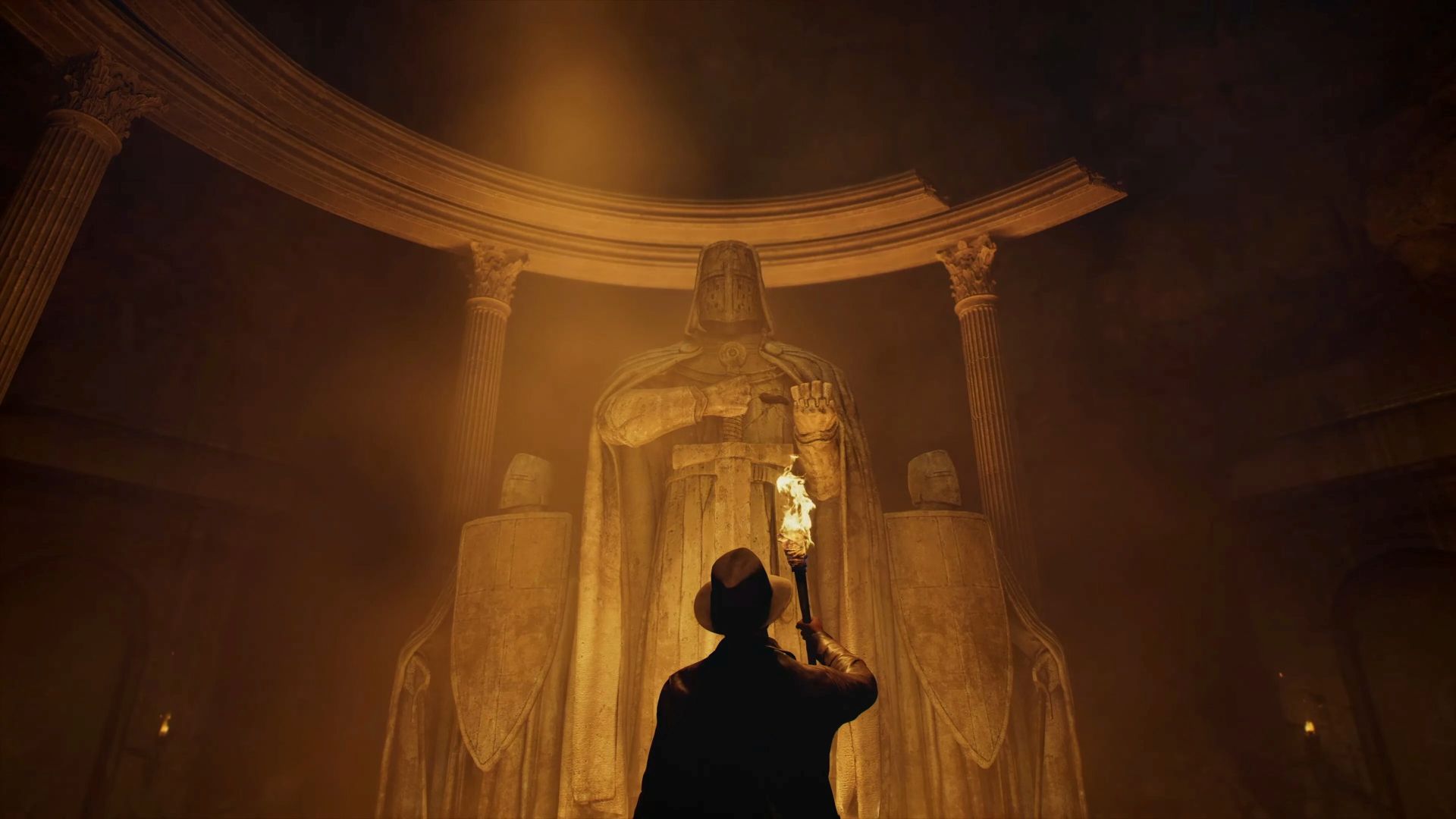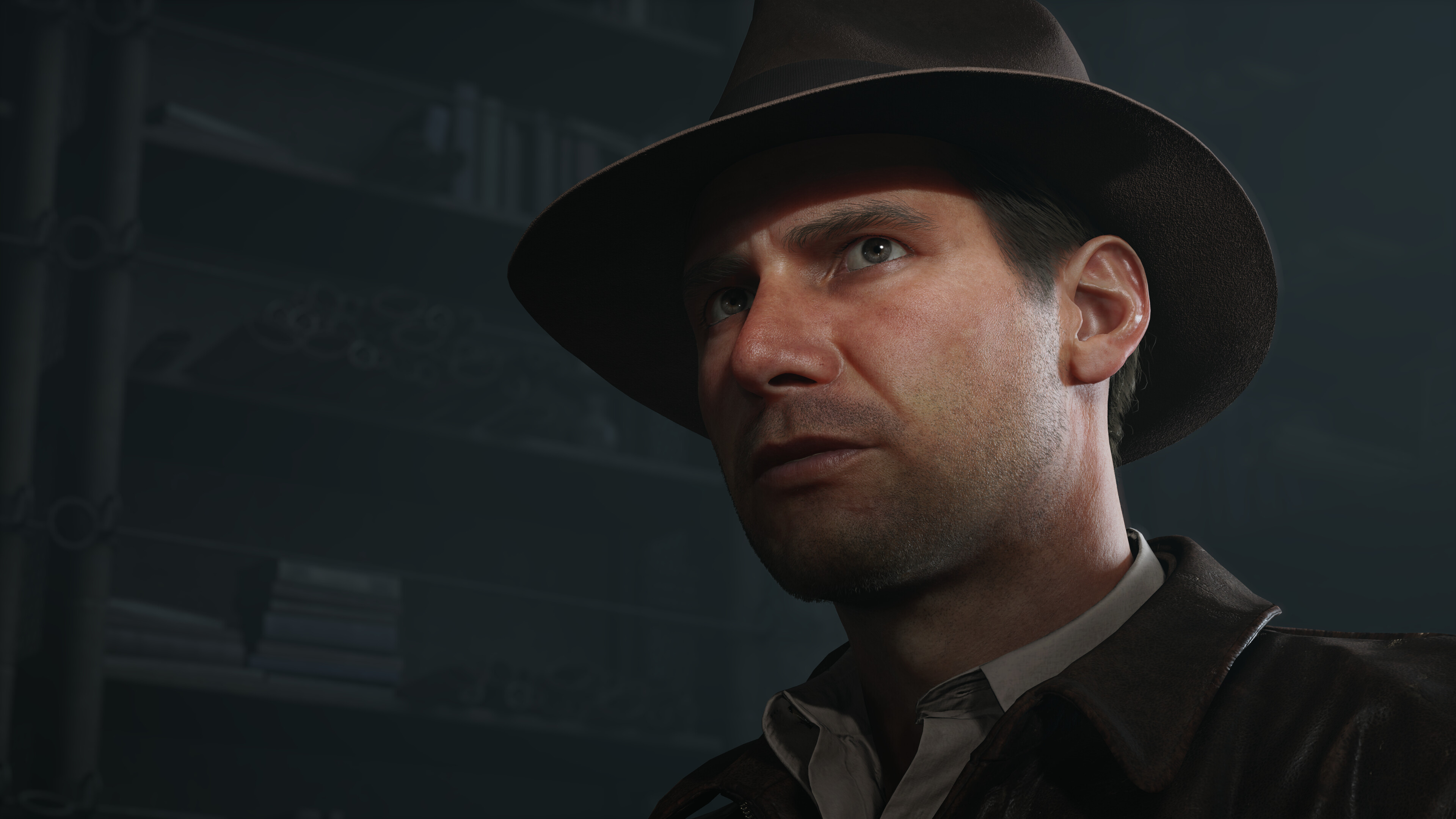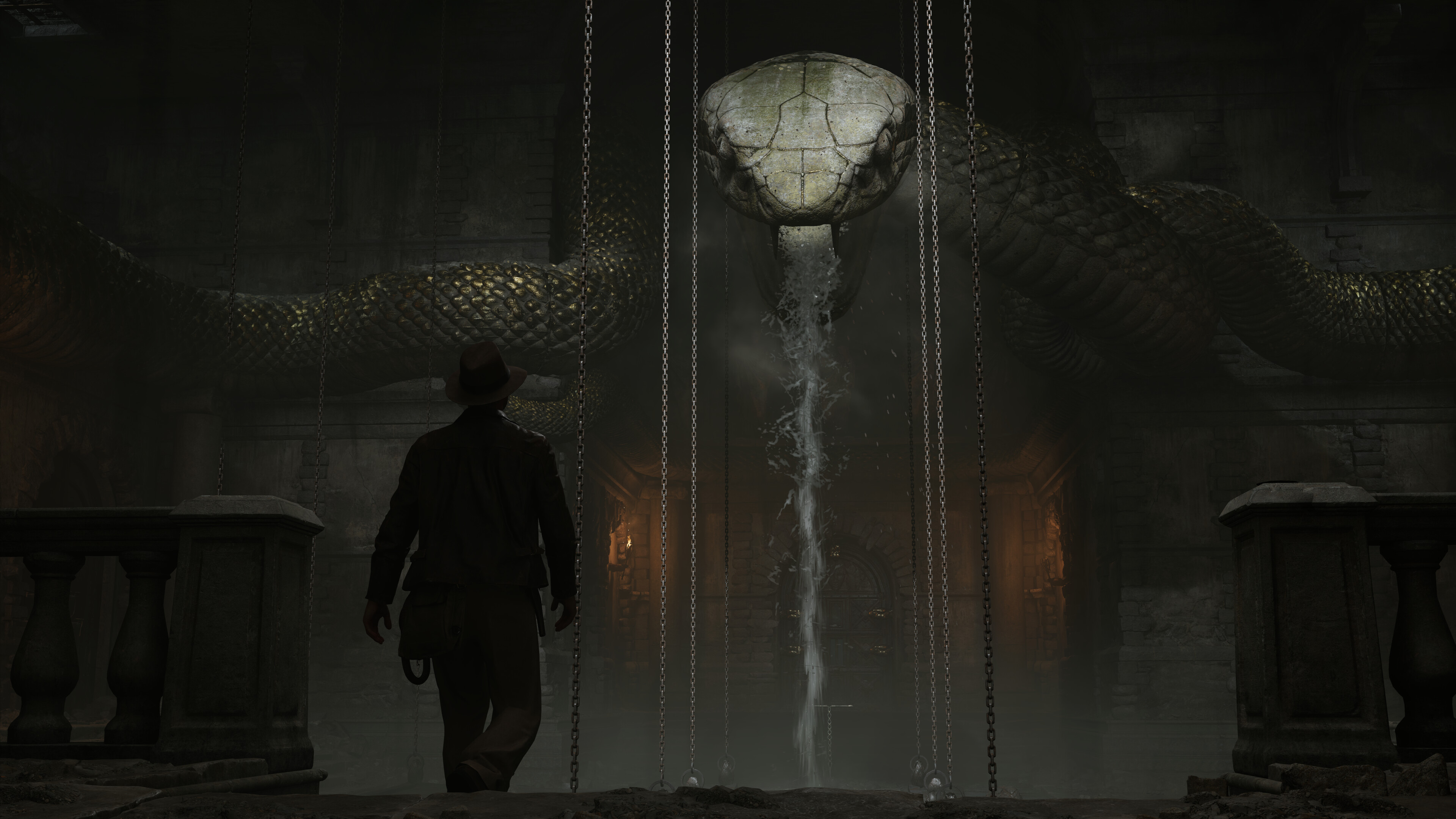Everything you need to know about Indiana Jones and the Great Circle’s PC optimization, including the best settings to use.

Indiana Jones and the Great Circle is among the very few Triple-A PC titles that demand hardware ray-tracing-capable GPUs as their baseline. Although the game is built using id Tech 7, the same engine that powered 2020’s Doom Eternal, Indiana Jones is significantly more demanding, especially in terms of VRAM. Furthermore, the game relies heavily on CPU and faster storage bandwidth to avoid texture loading issues.
Suffice it to say, Indiana Jones and the Great Circle isn’t a game that’s going to run on a “toaster”, despite its base being id Tech. Unfortunately, the PC port of the game is far from perfect, with frequent frame rate drops being a common issue.
Thankfully, Indiana Jones comes packed with plenty of options for the game’s visuals. Much like Doom Eternal, each of the options available has a significant impact on performance. However, figuring out the right preset for optimal performance can be quite intimidating for some players. To aid with that, here’s a comprehensive optimization guide for Indiana Jones and the Great Circle.
Indiana Jones and the Great Circle System Requirements
The minimum GPU requirement for Indiana Jones and the Great Circle is an RTX 2060 SUPER equivalent, with 8 GB of VRAM. With this GPU, which is quite powerful mind you, you can only achieve 60fps at 1080p, but with Low settings.
If you plan to play the game at 1440p with High preset, you will need something equivalent (or better) than the RTX 3080Ti. Suffice it to say, for 1440p, the GPU requirement is a bit too high, even when compared to other current-gen only titles. Furthermore, if you plan to play the game at 4K, maxed-out settings, you will require something equivalent to an RTX 4080 with 16 GB VRAM or RX 7900XT with 20 GB VRAM.
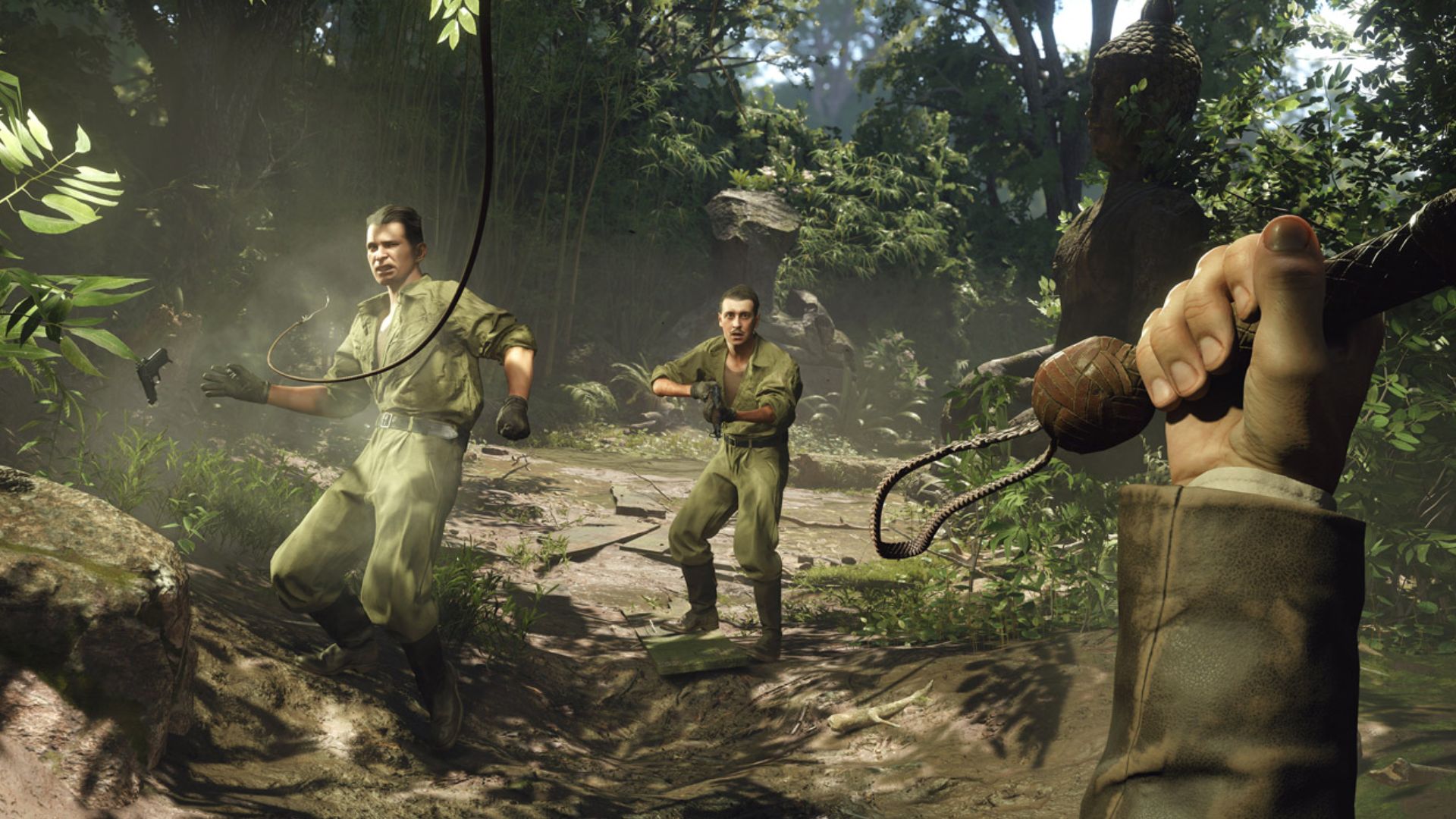
That being said, here are the official PC system requirements for Indiana Jones and the Great Circle:
Minimum
- OS: Windows 10 64-bit
- Processor: Intel Core i7-10700K @ 3.8 GHz or better or AMD Ryzen 5 3600 @ 3.6 GHz or better
- Memory: 16 GB RAM
- Graphics: NVIDIA GeForce RTX 2060 SUPER 8 GB or AMD Radeon RX 6600 8 GB or Intel Arc A580
- Storage: 120 GB
Recommended
- OS: Windows 10 64-bit
- Processor: Intel Core i7-12700K @ 3.6 GHz or better or AMD Ryzen 7 7700 @ 3.8 GHz or better
- Memory: 32 GB RAM
- Graphics: NVIDIA GeForce RTX 3080Ti 12 GB or AMD Radeon RX 7700XT 12 GB
- Storage: 120 GB
Ultra
- OS: Windows 10 64-bit
- Processor: NVIDIA GeForce RTX 4080 16 GB or AMD Radeon RX 7900XT 20 GB
- Memory: 32 GB RAM
- Graphics:
- Storage: 120 GB
It should be noted that these settings don’t take the ray-tracing presets into account. If you want to throw in ray-tracing in the mix, the PC specifications get a substantial uplift. The minimum GPU requirement for ray-tracing in Indiana Jones is an RTX 4070.
Best Settings for Indiana Jones and the Great Circle on PC
Much like Doom Eternal, Indiana Jones and the Great Circle comes with plenty of options to tweak the game’s visuals and performance. During our time with the game, the settings that had the most tangible impact on performance were—Texture Pool Size, Shadow Quality, Decal Rendering Distance, Reflection Quality, Volumetrics Quality, and surprisingly enough, Hair Quality.
Furthermore, the in-game frame rate cap also plays a part in stabilizing the overall frame rate. We tested the game out on two GPUs, an RTX 3070 and an RTX 4070 Super. Based on our testing of the game, here are the best settings to use in Indiana Jones and the Great Circle:
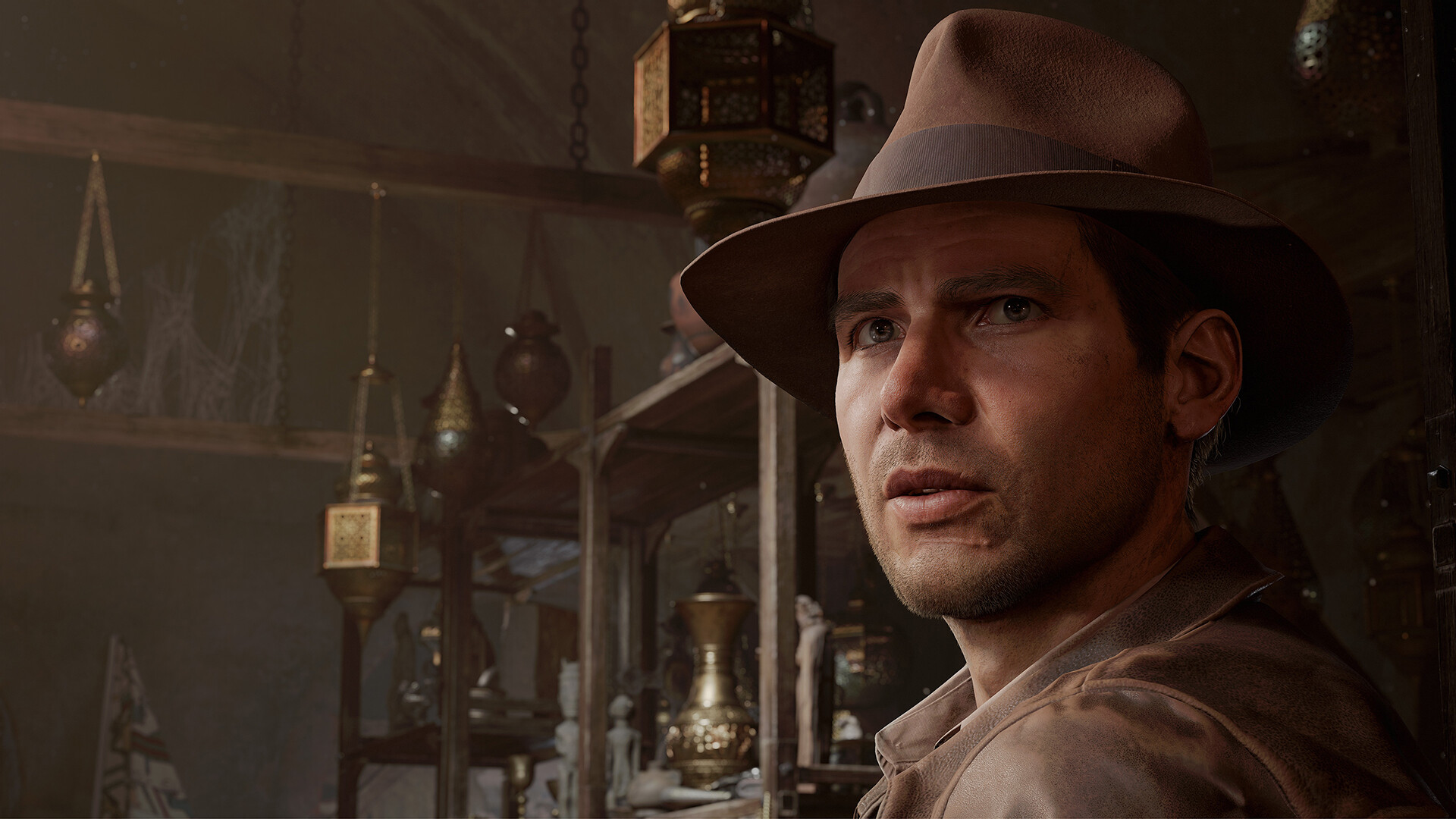
| Settings | Low (1080p at 60fps) | Recommended (1440p at 60fps/ 1080p – unlocked frame rate) | Ultra (4K at 60fps) |
| Picture Framing | Fullscreen | Fullscreen | Fullscreen |
| Field of View | 90 | 90 | 90 |
| Vertical Sync | Off | Off | Off |
| FPS Limit | 60 | 60/1,000 | 60 |
| Texture Pool Size | Low | High | Supreme |
| Shadow Quality | Low | High | Very Ultra |
| Decal Rendering Distance | Medium | High | Very Ultra |
| Global Illumination Quality | Medium | High | Supreme |
| Reflection Quality | Low | Medium | Supreme |
| Motion Blur Quality | Low | Low | Low |
| Water Quality | High | High | Very Ultra |
| Volumetrics Quality | Low | High | Very Ultra |
| Hair Quality | Low | Medium | |
| Texture Anisotropic Filtering Quality | High | Very Ultra | Very Ultra |
It should be noted that we also used Nvidia DLSS (Quality) to get a consistent frame rate. While it’s not necessary to use an upscaler with the optimized settings, it is recommended to do so. Furthermore, if you’re not using a G-Sync or Freesync compatible display, it’s best to use the in-game Vertical Synch option with a frame rate cap (preferably 60fps).
Looking For More?
Thank you for reading the Indiana Jones and the Great Circle PC optimization guide. We provide the latest news and create guides for Baldur’s Gate 3, Fallout 4, ARK Survival Ascended, and more. Also, watch Deltia play games on Twitch or visit his YouTube channel!
 Reddit
Reddit
 Email
Email
